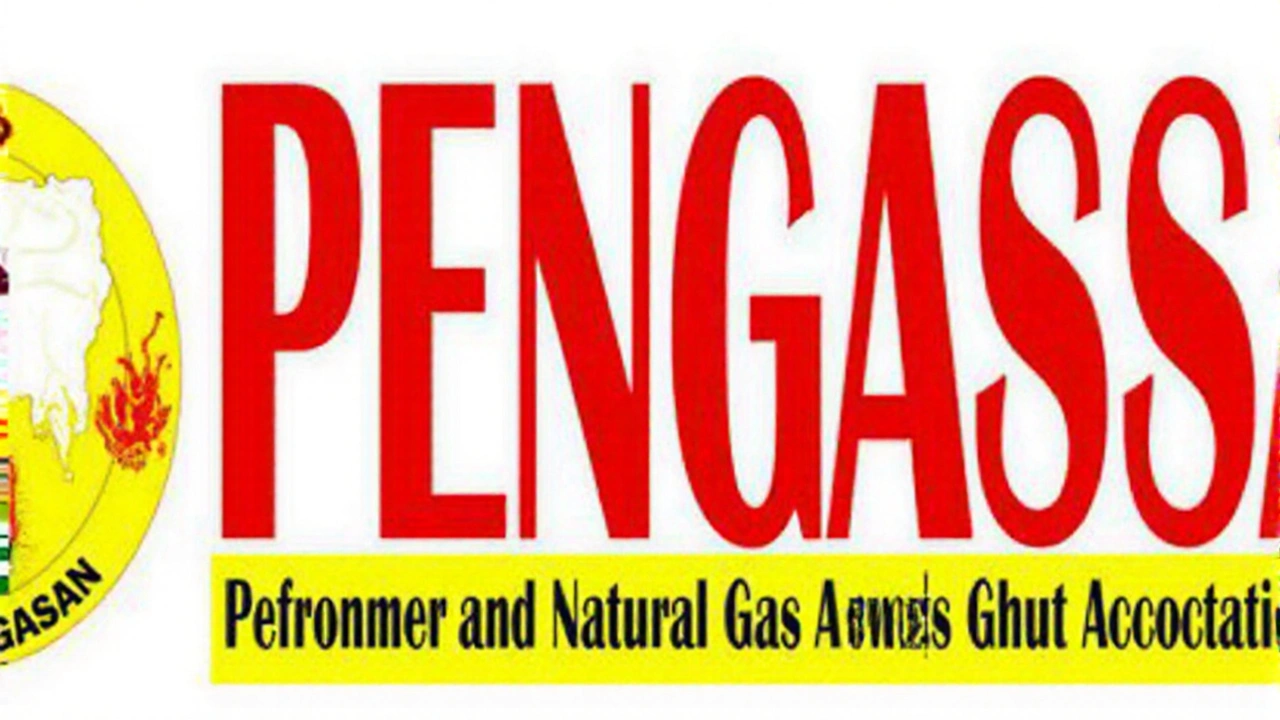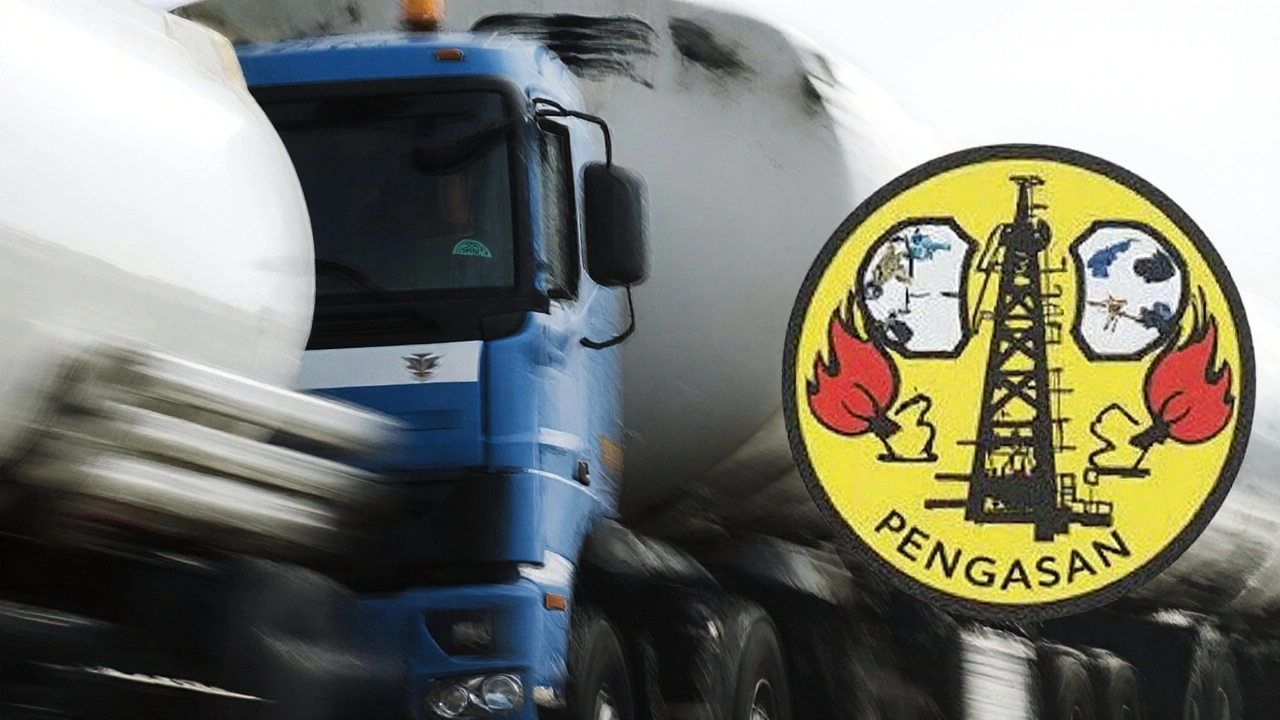Dangote Refinery Faces Shutdown Threat as PENGASSAN Backs NUPENG in Unionisation Fight

Unionisation Standoff Escalates
When the Dangote Refinery announced it would hire 4,000 truck drivers for its massive 650,000‑barrel‑per‑day complex, it also signalled that those drivers could not join the country’s established unions. That line‑item sparked an immediate backlash from NUPENG, which swiftly halted fuel loading at several petroleum depots on Monday, warning that any interference with union rights would jeopardise the nation’s fuel supply.
PENGASSAN’s General Secretary, Lumumba Okugbawa, opened up a fierce press conference the same day. He said the refinery’s management had “systematically resisted potential members of both PENGASSAN and NUPENG since its inception,” and that diplomatic overtures had fallen on deaf ears. He added that the unions were prepared to walk the line from protests to a full‑scale shutdown if the company did not reverse its stance.
In response, Dangote’s spokesperson claimed the decision was driven by “security concerns” tied to repeated sabotage reports, and that the layoffs of 800 workers were part of a broader reorganisation. The union side, however, labeled the cuts as “unconsulted and opaque,” pointing out that Nigerian labour law requires transparent consultation before any mass dismissal.
Both unions are now demanding that every employee at the refinery—including the newly recruited drivers—be allowed to affiliate with either PENGASSAN or NUPENG without fear of retaliation. They argue that the right to organise is enshrined not only in national statutes but also in International Labour Organisation conventions that Nigeria has ratified.

Economic and Legal Implications
The stakes go well beyond a single workplace. The refinery is a keystone of Nigeria’s push for fuel self‑sufficiency; any prolonged shutdown could tighten fuel availability, spike transport costs, and ripple through the nation’s already fragile economy. Analysts note that even a brief interruption could push gasoline prices up by 10‑15 percent, a hit that would be felt most acutely by commuters and small businesses.
Legal experts point out that denying workers the right to unionise breaches the Labour Act of 2004, which guarantees freedom of association. They also cite ILO Convention No. 87, which protects workers’ rights to form and join organisations of their choosing. Should the case go to court, the refinery could face injunctions, hefty fines, or even compulsory reinstatement of dismissed staff.
Minister of Labour, Employment and Productivity Muhammadu Dingyadi has convened an emergency round‑table in Abuja, inviting representatives from both unions, the refinery’s management, and senior government officials. The goal, he says, is to find a “practical and lawful” pathway that respects workers’ rights while keeping the refinery’s output on track.
While talks are underway, the unions have warned that they will act decisively if the refinery’s management continues to stall. Okugbawa told reporters that “should the situation persist without resolution, PENGASSAN will have no option but to join in shutting down the refinery operations as a last resort.” The message is clear: the labor front is prepared to leverage the refinery’s economic importance to secure the rights they deem non‑negotiable.
For now, the country watches a developing story that could reshape how Nigeria balances industrial growth with fundamental labour protections. The next few days will likely determine whether dialogue can avert a shutdown or whether the standoff will force a broader confrontation between corporate ambition and workers’ rights.
10 Comments
Amy Paradise
Dangote's move could really jolt fuel prices 😬.
Janette Cybulski
It's tough to see the workers caught in this tug‑of‑war. The unions are just trying to protect basic rights, which is something we can all get behind. If the refinery shuts down, everyone from commuters to small shop owners feels the pinch. Hopefully a middle ground can be found without more protests.
Mildred Alonzo
Union rights matter. Workers need a voice.
Elizabeth Bennett
From a practical standpoint, the refinery can’t ignore security concerns, yet it also can’t trample labor law. A transparent consultation process would appease both sides and keep production humming. Management should draft a clear policy and share it with the unions ASAP.
linda menuhin
Yo, think bout dis – a plant without people is like a brain without thoughts. If da workers cant join a union, dey just become pawns in a big corporate game. Gotta ask who really profit when fuel price spikes for the man on the street? Real talk, let dem choose.
Jeff Abbott
Looks like another classic case of big business trying to sidestep regulations. The unions are just a nuisance to their profit margins, and the government’s round‑table is a circus. If they don’t get their way fast, we’ll see chaos and a lot of angry drivers on the streets. No one wants that, but it’s inevitable.
Quinton Merrill
🚨 This showdown could send gas prices soaring and hurt everyday commuters. The unions have a legit point, but the refinery also cites security threats. A balanced solution is vital, otherwise we’re looking at long lines at stations everywhere.
Linda Lawton
Sure, they claim “security concerns,” but who’s really behind the sabotage rumors? Could be a hidden agenda to weaken local labor power and hand the market over to foreign interests. Stay woke, folks.
Ashley Bradley
The Dangote refinery situation is a textbook example of how economic ambition can clash with fundamental labor rights. When a mega‑project like this decides to bypass established unions, it sends a chilling message to workers across the nation. Workers deserve the freedom to associate, a principle enshrined in both national law and international conventions. Ignoring that right not only violates legal statutes but also sows distrust among the workforce. Trust is essential for any large‑scale operation that relies on coordinated logistics and safety protocols. Moreover, the potential shutdown threatens fuel supplies, which could ripple through the entire economy. Commuters, small business owners, and even hospitals could feel the impact of even a brief disruption. Economists warn that a 10‑15 percent rise in gasoline prices would strain household budgets already stretched thin. On the legal front, the Labour Act of 2004 provides clear mechanisms for grievance resolution that seem to be sidestepped here. Courts could intervene, issuing injunctions or fines that might outweigh the perceived benefits of the refinery’s stance. Politically, the government’s emergency round‑table shows awareness but also an appetite for a quick fix rather than a deep structural solution. A genuine dialogue would involve transparent consultation, safety assessments, and a concrete plan to integrate union representation. Such a plan could preserve both security and workers’ rights, demonstrating that growth and fairness are not mutually exclusive. Ultimately, the outcome will set a precedent for how Nigeria balances industrial development with democratic labor practices. The best path forward is a compromise that respects legal obligations, protects employees, and keeps the refinery’s output steady for the nation’s benefit.
Joe Delaney
Jeff, while your points hit hard, a cooperative approach could avoid the worst‑case scenario.

Write a comment